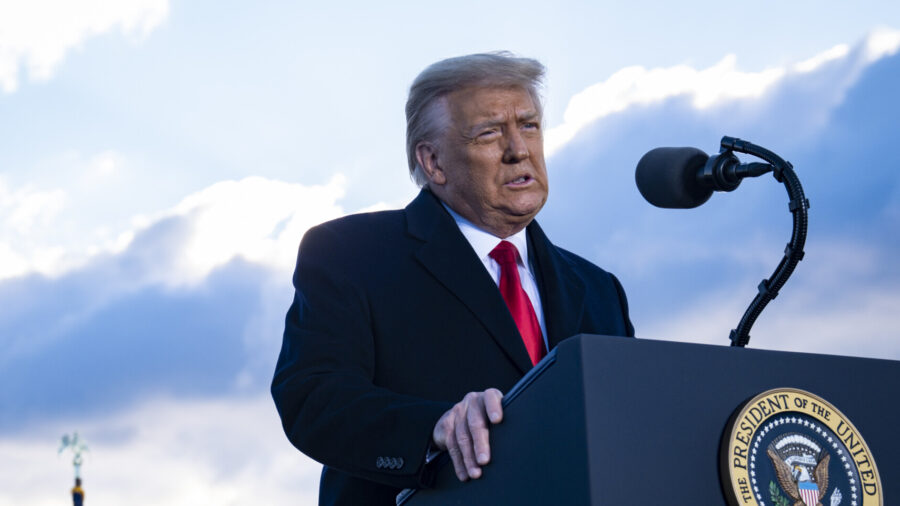The Supreme Court threw out two longshot anti-corruption lawsuits against former President Donald Trump this morning on the grounds they were moot because he has left office and become a private citizen.
The high court unburdened itself Jan. 25 of Trump v. Citizens for Responsibility and Ethics in Washington (CREW), court file number 20-330, and Trump v. District of Columbia, court file number 20-331.
No justices dissented from the rulings, which are victories for Trump. The novel lawsuits came about because Trump, a billionaire real estate developer, refused under intense pressure from his opponents to give up his business empire while in the White House. Trump did step aside from managing his businesses while president but that did not satisfy his critics.
The lawsuits claimed that while in office Trump violated the Foreign Emoluments Clause of the U.S. Constitution, which prevents any “Person holding any Office of Profit or Trust under them” from accepting “any present, Emolument, Office, or Title … from any King, Prince, or foreign State.” The hardly-ever litigated clause forbids government officials from receiving gifts from foreign states and monarchies without the consent of Congress, in the hope of shielding the “small-R” republican character of the United States from corrupting foreign influences.
Two federal appeals courts allowed the lawsuits to move forward but in September the U.S. Department of Justice asked the Supreme Court to dismiss the cases. Today the Supreme Court sent both cases back to those appeals courts “with instructions to dismiss [each] case as moot.”
In Trump v. CREW, which had been before the U.S. Court of Appeals for the 2nd Circuit, lawyer Deepak Gupta argued his clients, high-end businesses in competition with Trump’s businesses, experienced a “distinct disadvantage in competing for foreign and domestic government clientele: While they can offer the finest hospitality, they cannot offer the ability to curry favor with the President.”
In Trump v. District of Columbia, the District and Maryland argued the mere fact that foreign officials stayed at Trump’s hotel in the nation’s capital and paid money to do so implied corruption was somehow afoot. That case was before the U.S. Court of Appeals for the 4th Circuit.
The losing litigants put a positive spin on their legal defeats.
D.C. Attorney General Karl Racine (D) and Maryland Attorney General Brian Frosh (D) said in a joint statement that “we are proud that because of our case, a court ruled on the meaning of ‘emoluments’ for the first time in American history, finding that the Constitution prohibits federal officials from accepting almost anything of value from foreign or domestic governments.”
“Our case proves once again that in our country no one—not even the President of the United States—is above the law,” they said.
CREW executive director Noah Bookbinder said in a statement that “this important litigation made the American people aware for four years of the pervasive corruption that came from a president maintaining a global business and taking benefits and payments from foreign and domestic governments.”
“Only Trump losing the presidency and leaving office ended these corrupt constitutional violations stopped these groundbreaking lawsuits,” he said.
The Trump Organization could not be immediately reached for comment.
This is a developing story. The article will be updated.
From The Epoch Times


